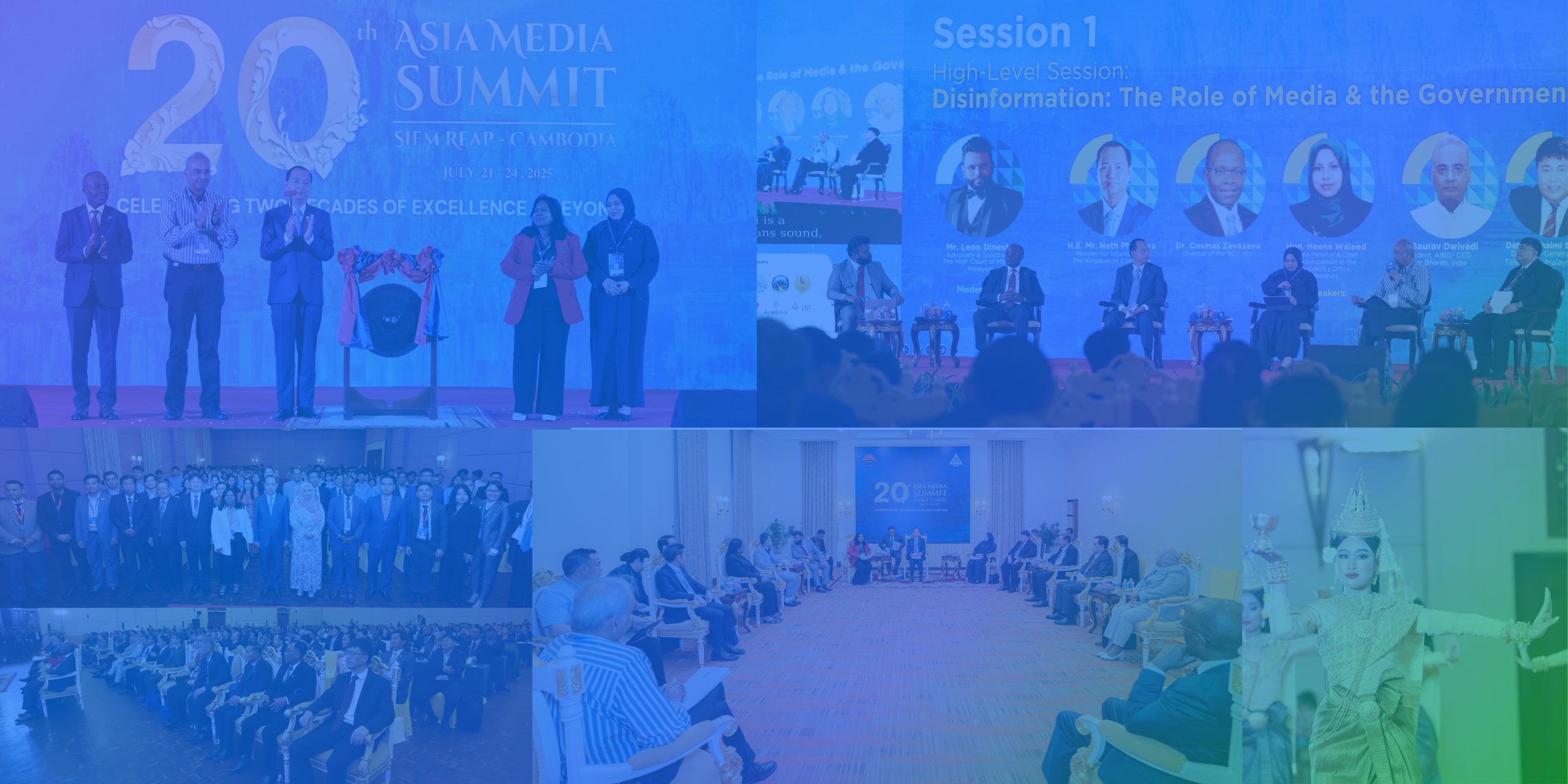
Cambodia Seeks Strong Regional & Global Cooperation VS Disinformation
Cambodian Prime Minister Hun Sen recommended several ways to maximise the benefits of the digital revolution and help combat disinformation, cybercrime, hate speech and various forms of discrimination.
Speaking to broadcasters and other media stakeholders during the inaugural ceremony of the 16th Asia Media Summit in Cambodia on 12 June 2019, Mr Hun Sen called for regional and global cooperation in enhancing exchanges in information and experiences on technology development and physical infrastructure building in order to embrace the benefits of the Fourth Industrial Revolution.
He also urged similar collaboration to fight false information and cybercrime happening through media.
“Strengthen law enforcement, ethics and professionalism to counter fake news, insulting or inciting for discrimination, hate speech, causing hostility, anger, which may lead to racial controversy”, he said.
The Cambodian leader also encouraged media stakeholders to pursue increased professional and technical competencies in order to take advantage of modern technology and face market competition in the digital era.
In his keynote address, Prime Minister Hun Sen cited the benefits of digitisation that led to new discoveries like hyper-connectivity, OTT, AI and large content bank.
“Digital technology substituted the use of analogue technology interns of power, potential quality, efficiency, speed of transmission, data archiving, less use of radio frequency, less production expenses, and emergence of a more dynamic media sector”, he said.
Cambodia is preparing for digital migration, which, he said, is planned by 2023.
More than 600 local and foreign participants from 45 countries attended the two-day summit that examined the theme ‘Media Digitisation with a Focus on Developing Markets’.
Welcoming the delegates, Cambodian Information Minister, Dr Khieu Kanharith, urged them to engage in a fruitful dialogue in the summit, which for many years has provided opportunities for broadcasters to examine key media issues in the region. He also wished them an enjoyable cultural visit to ancient temples and museums in the country.
Other key members of the Prime Minister’s government also attended the occasion including deputy prime minister, provincial governor and other local government officials.
Don’t forget community broadcasting
Mr Sardar Umar Alam from UNESCO, Cambodia, delivered a special address, saying new technologies including Artificial Intelligence (AI) are generating much attention all over the world.
“How will AI affect the digital revolution in media? What is certain is that as AI becomes more embedded in our daily lives, media will undoubtedly be affected”, he said.
In meeting the challenges of the digital revolution, the UNESCO official advised not to forget about community broadcasting. “It must not be left behind in digital terrestrial transition. UNESCO emphasizes the principle of equitable access to frequency spectrum outlined in community media sustainable policies”.
He also said that media plays a critical role in supporting peace and democracy, public access to information and protection of individual freedoms. He said UNESCO believes these freedoms allow for mutual understanding that brings about sustainable peace.
Mr Alam also said that in recent months some governments in the region were blocking or slowing down access of social media to prevent dissemination of false information in the aftermath of terrorist attacks or large-scale protest.
“The efficacy of such action is not clear. There are concerns of blocking legitimate use of platforms including for journalism”, he added.
He instead called for efforts to increase competencies necessary to navigate the complex and changing social network environment. This includes media literacy initiatives that will enable everyone to require skills to critically evaluate media and its content.






